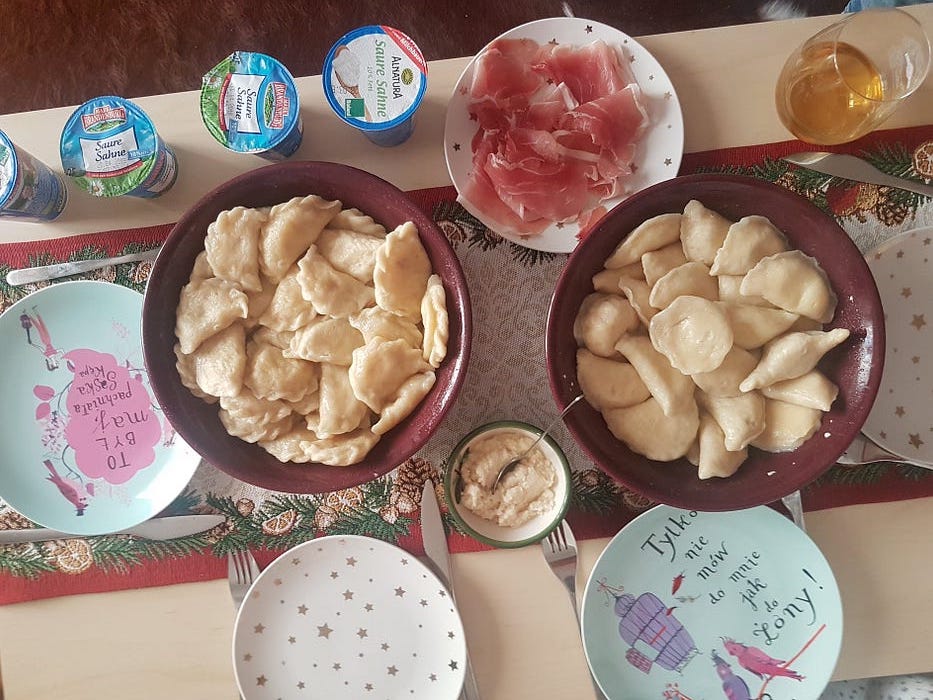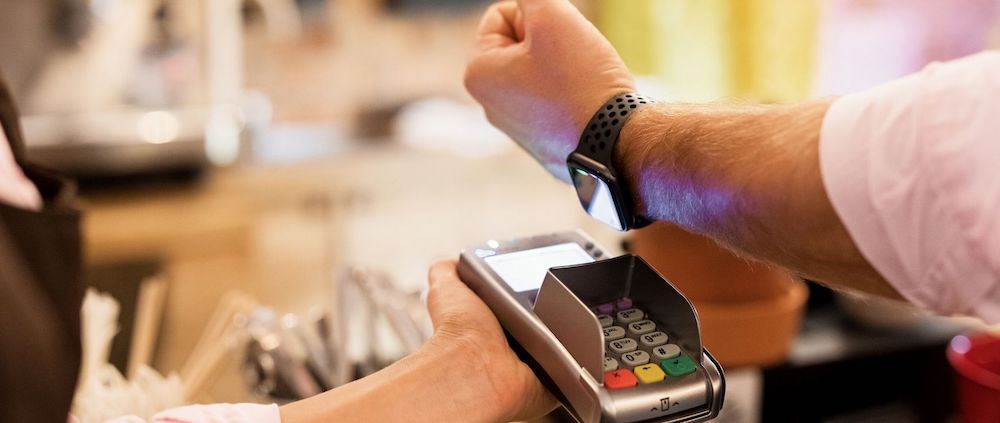Ukrainian refugees miss home. It’s a no-brainer, of course, and one doesn’t need any specific reason for this. But there are also things that Ukrainians often find lacking in the countries that are hosting them.
And no, it doesn’t mean that they’re ungrateful. It just means that these things are, well, different, and they are used to something else.

Cheap and tasty food
Ukrainian food is cheap, locally sourced, and very tasty. The world knows some examples of it — borscht which is considered Russian but is indeed Ukrainian; varenyky (dumplings with different fillings), mlyntsi (crepes) with sour cream, deruny (potato pancakes). But it is not just about the dishes, it’s more about the ingredients. The fruit and vegetables actually have a taste. In Germany, the tomato has a very faint taste and almost no smell; in Ukraine, it’s bursting with a splash of flavors in your mouth, same as every other fruit and veg. And don’t make me started on the meat, especially cured or salted.
One other very obvious difference is the lack of variety. In Germany, if you visited one bakery, you visited them all. A business idea like “bake unique cakes and people will storm your place” would never fly here.
Ukrainians are appalled by the prices in German supermarkets and they understand these prices even less when they taste the produce.
Quality beauty services
Ukrainian women are known for their natural beauty, but also for their hair and nail care. Many females like makeup and would be horrified going out of the house with a “naked” face. Hair in unwanted places is removed, either via regular waxing in beauty salons or via laser treatments. A lot of women visit beauty salons on a regular basis for face and body treatments like massages, facials, and even beauty injections. Many start doing them at quite a young age. The so-called permanent makeup that is basically tattooed on is also widely spread.
The prices for these services rise and the quality goes down from East to West. So, many Ukrainian women in Germany are seeking out Ukrainian beauticians or starting some of the routine care at home. Some learn to live without these treatments, but many Ukrainian women would think that it lowers their quality of life in an unacceptable way, so they will search high and low to find a replacement.

Access to health services
According to the UNHCR: “The healthcare system in Germany has been able to accommodate most [resettlement] needs so far.” However, there may be some delays in getting appointments due to language barriers or other factors such as insurance coverage issues that prevent access by refugees who need medical attention urgently but cannot afford private care (or even basic things like prescriptions).
Tell me about it.
This whole system was a disappointment to me from start to finish, since we had to host our Ukrainian relatives here in Germany.
Ukrainians are shocked by the shortage of specialist doctors, by the very limited range of treatments, and by the practically non-existent over-the-counter drug options. The waiting times for specialist treatments and surgeries are months and sometimes years if you don’t have a severed limb. Also, there is no centralized place where such things as doctors and appointments could be found online. There are several private apps like Doctolib and Jameda, but they’re optional for doctors. In general, the appointment system is still mainly based on phone calls.
And what are phone calls for people who are aliens in the country and don’t speak its language?
They are an obstacle.
Ukraine can boast centralized systems for finding a specialist or an appointment online, and the waiting times would be several times shorter. And it’s all with public insurance. With private, self-paid medical care, one can find options within days, and sometimes hours. The doctors usually are generous with prescriptions, and a very wide range of drugs is OTC.
Customer service
In Ukraine, the paying customer is king. Even though there are no all-over smiles like in the United States, people with means can find any service, fast. I mentioned beauty services above because they are a very distinct category, but the same is true for everything.
Internet in your house? Paintwork or floorboards done? Nanny services? A haircut tomorrow? The average German would cry when acquainted with the waiting times for common services, and especially with the prices. They just wouldn’t be able to help comparing it to Germany, where everything would be several times more expensive and would also take much longer.
Opening hours
One of the biggest differences between Germany and Ukraine is the difference in opening hours. In Ukraine, most stores are open until 8 or 9 p.m. — and sometimes even later. In Germany, most stores close by 6 p.m. or 7 p.m. every day, with some exceptions such as supermarkets which stay open longer than other shops. It’s very inconvenient for Ukrainians, who are quite used to late shopping after work. After all, when one has the time otherwise?
Stores being closed on Sundays is a big source of frustration and is considered by Ukrainian expats to be completely crazy. In addition, Ukrainian shopping malls are often more developed than German ones, in terms of offering more services. In winter especially, but also in other seasons, they’re a go-to place for families with kids and will often provide an indoor playground, a cinema or an entire amusement park. In Germany, such malls are few and far between, and even if there are some, they’re still closed on Sundays.
Going digital
This has been mentioned when we talked about medicine, but this is indeed way more far-reaching. Germany is woefully non-digital, and one feels it very deeply when one comes from a country that is way more advanced, even while being considered less “developed”.
Once, I joined my female friend, an avid runner, for a jog on the outskirts of Krakow, Poland. It was winter and quite cold; we were running around the lake and I needed a “technical stop” — a restroom. There was one on the beach, and it was one of those metal booths that have automatic doors. In Berlin, they’re usually only taking 50 eurocent coins. My friend nodded in the direction of this booth.
“Oh, no,” I said. “I can’t, I don’t have any cash on me.”
“It’s no problem,” she said lightly. And then she ran by the booth and swiped her Apple Watch, and lo and behold — the door started opening.
I remember I was so shocked, I almost forgot that I needed to pee.
A person. Just paid. With the watch. The watch!
In Berlin, I couldn’t even use my VISA creditcard in many of the stores. Or if I could, they would accept no Google Pay or Apple Pay. Long story short, one still can’t go cashless in Berlin and feel safe.
But one could, absolutely, use a restroom in a remote area of a non-capital Polish city. With no coins.
Ukrainians pay with their VISA cards or use electronic transport passes on all means of public transport, use Apple Pay, Google Pay, and whatnot. Their documents have electronic versions which are stored in a special centralized application they have on mobile phones.
The ID from that application can be used to sign electronic petitions on the government website, the same as the login credentials from a banking application for any major Ukrainian bank like Privatbank. Privatbank applications also allow one to do a lot more: buy plane and train and bus tickets, pay for services and utilities, parking and fines, buy insurance, pay for mobile services, internet, and TV, and send internal transfers having just the recipient card number. Everything is on a mobile phone.
Germany is slowly becoming more automated — the pandemic forcefully dragged it from the stone age, and the process, albeit slowly, goes on. But it has a long, long, long way to go.
Conclusion
In this article, I’ve outlined a few material things Ukrainian refugees are missing in their forced emigration. But of course, there are two sides to every story. I’ll try to provide my take on the other one in the next article.
––––––––––
Read more from Maryna Cherniavaska here.
Read more about Ukrainian refugees from the war here.
Maryna is a software developer from Ukraine who now lives in Germany. Maryna also writes a programming blog to share her knowledge. She sometimes speaks at conferences, though being an introvert, writing comes more naturally. She says she’s not a professional writer but writing is something she likes, “and I think I can do it pretty well.”














